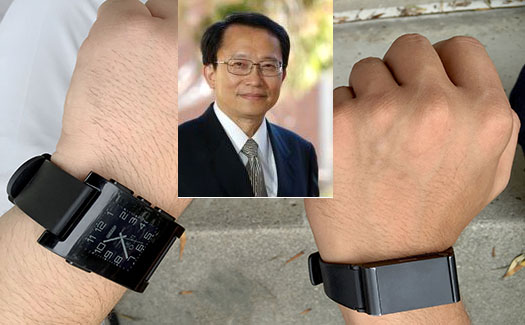Distinguished Professor Chang and JPL Colleague Develop Chip to Speed Up Wearable Devices

Researchers at NASA’s Jet Propulsion Laboratory and the UCLA Electrical Engineering Department have developed a technology that could reduce the power needed to send information from wearable devices.
Whether tracking steps, monitoring health conditions or sending photos from a smart watch, users want the battery life of wearable devices to last as long as possible. If the power necessary to transmit and receive information from a wearable device to a computer, cellular or Wi-Fi network were reduced, users could get a lot more mileage out of their technology before having to recharge it.
Adrian Tang of NASA’s Jet Propulsion Laboratory and M.C. Frank Chang, UCLA’s Wintek Chair in Electrical Engineering, are working on microchips for wearable devices that reflect wireless signals instead of using regular transmitters and receivers. Their solution transmits information up to three times faster than regular Wi-Fi.
There are a multitude of potential applications for this technology. For example, astronauts and robotic spacecraft could potentially use it to transmit images at a lower cost to their precious power supplies, and medical professionals envision that wearables will become essential for monitoring patients’ vital signs.
For more information, click here.
http://www.jpl.nasa.gov/news/news.php?feature=4663
Photo credit: Courtesy NASA/JPL-CalTech
